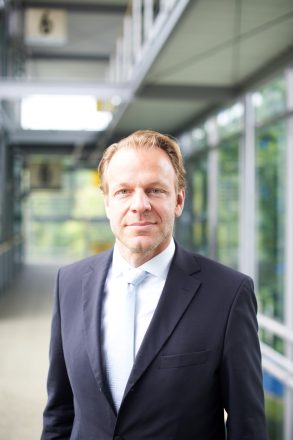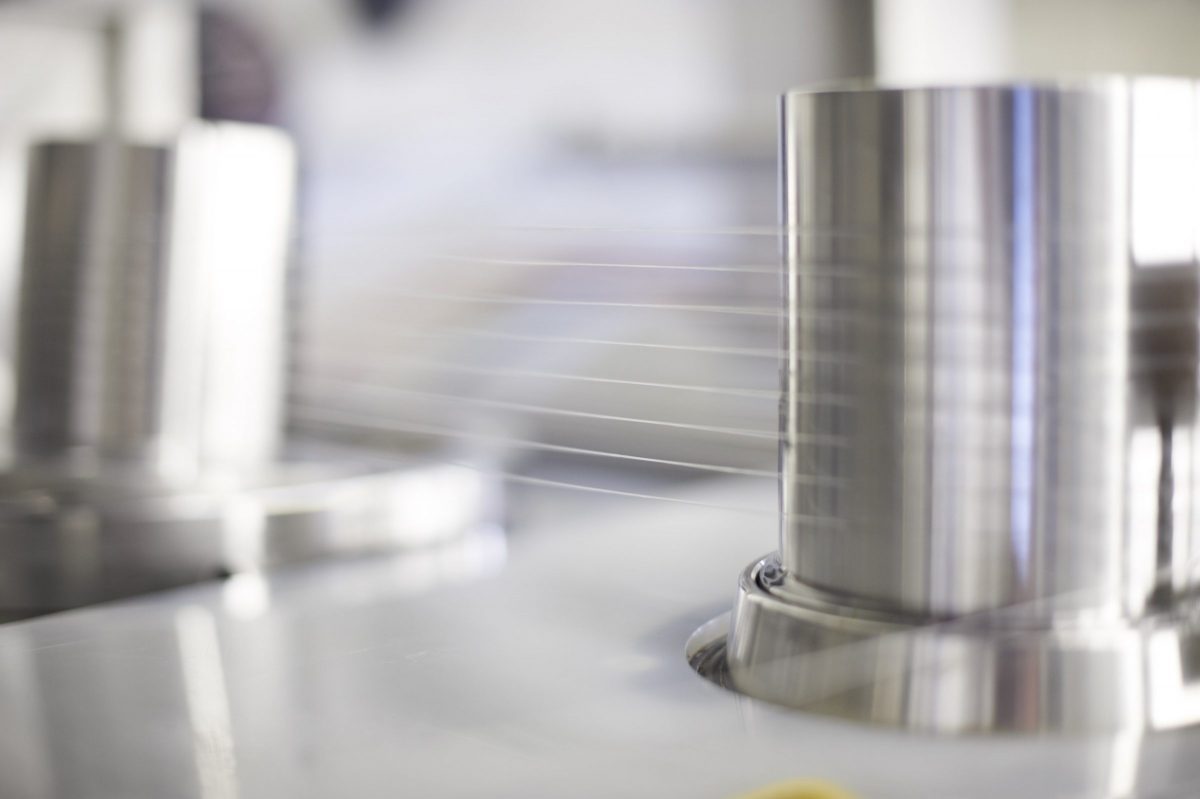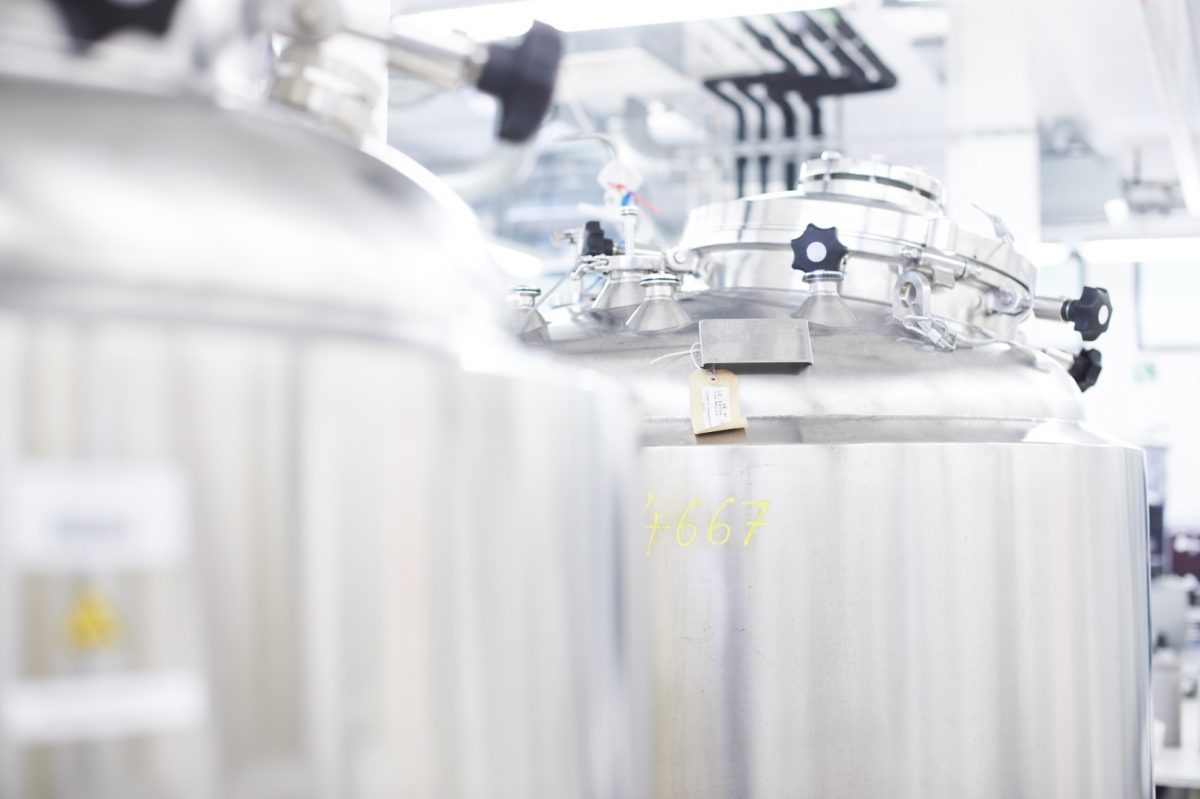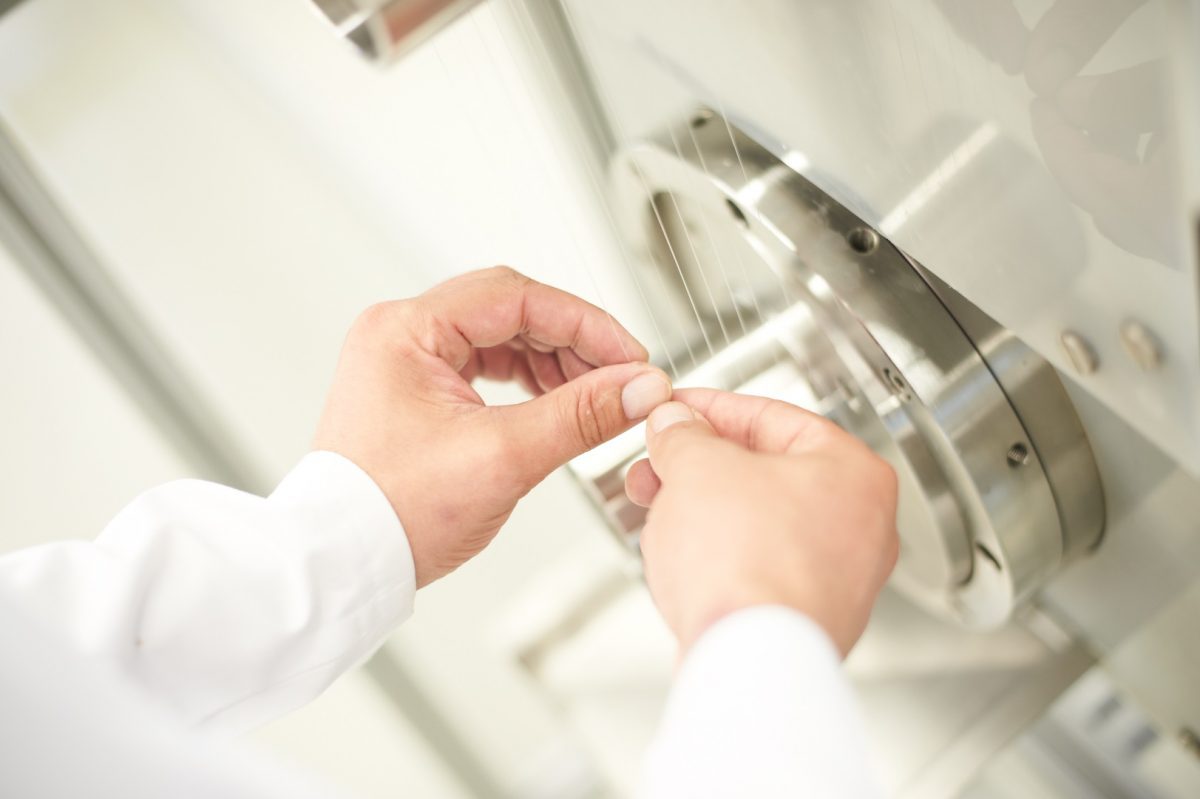The Munich-based biotech company AMSilk began as a spin-off from the Technical University of Munich (TUM) in 2008. Since its founding a good twelve years ago, the startup has turned into a company with more than thirty employees and many customers around the world.
Distinguished as one of the world’s 50 most innovative companies in 2017, AMSilk is the first and only company able to produce biotech spider silk on a large scale. The AM in the name AMSilk stands for “advanced materials,” and “silk” refers to the spider silk produced using biotechnology. The silk biopolymers are designed for various applications, for example in the aeronautics, medical, lifestyle or cosmetics industries.
AMSilk: Turning bacteria into silk
Where did the innovative idea behind the startup come from? The company explained it to us: In contrast to traditional silk that is produced in large amounts by silk worms, spiders only produce small amounts of their robust fibers. Neither scientists nor the chemical industry had been able to produce spider silk on a larger scale necessary for industrial manufacturing before AMSilk was founded.
To solve the problem, the inventor of the technology, Thomas Scheibel — who was a professor at TUM back then — went down a different and highly innovative path: His patented method is based on the use of genetically modified E. coli bacteria. The bacteria were basically reprogrammed to produce spider silk protein. Using a special procedure — which according to CEO Jens Klein was perfected over a matter of years — the protein molecules are now used for applications such as coating medical devices or are spun into special fibers.
Technology as a game changer
We asked CEO Jens Klein about the path taken by the company — starting with the unusual idea from the world of research that turned into the successful company now known as AMSilk.

Munich Startup: Mr. Klein, how complicated was it to establish your revolutionary idea on the market?
Jens Klein, AMSilk: Producing a very sought-after yet brand new material in large quantities at a reasonable price and establishing it on the market is anything but trivial. We had to develop and optimize many steps to be able to serve large and diverse markets. Our interdisciplinary team did an exceptional job and has established a real innovation on the market. And that is just the beginning. We’re developing a host of further interesting products — particularly in the field of fibers that will be available in stores soon.
“The potential to make established products obsolete”
Munich Startup: AMSilk was selected as one of the world’s most innovative companies by Technology Review in 2017. How did it feel to receive that award?
Jens Klein: Being distinguished as one of the world’s 50 most innovative companies illustrates the enormous potential of silk technology. A brand new product like our biotech silk is not just an innovative idea, but also has the potential to replace established products and make them obsolete – and to change entire industries over the long term. Our product is a real game changer.
Munich Startup: When the company was founded in 2008, startups didn’t receive as much support as they do now. In that context, what were the biggest challenges that AMSilk faced?
Jens Klein: There was already some support available for startups in 2008, which we made extensive use of. Conditions are certainly better now, but it’s essentially about finding the necessary know-how for the company. That is made possible by startup programs and also by the relevant industry experts. And of course sufficient financing with a focus on an entrepreneurial approach is always essential. We were lucky enough to have the right investors on board from the very beginning. (Note from editor: The idea impressed not only Munich-based MIG Fonds, but also the investment firm AT Newtec, which is backed by the Hexal founders Andreas and Thomas Strüngmann.)

Biosteel is a nature-based bionic high-performance fiber. 
The base material for the fibers is produced using a scalable biotech production process.
“Finding the necessary know-how for the company”
Munich Startup: Mr. Klein, you got on board in 2014. Why at that point in time? Can you tell us how it changed the company?
Jens Klein: AMSilk has a highly innovative technology that is capable of playing a major role in disrupting established industries and moving towards more resource-friendly business. That being said, that technology is of little help if you can’t successfully put products on the market.
And that was precisely my core task when I joined AMSilk in 2014: focusing on marketable products in the cosmetics, textile and medical technology industries. And the same is certainly essential for other startups in a similar situation. Young companies in Germany in particular are always inventing new and exceptional technologies. But unfortunately, they often fail to turn those ideas into marketable products.
There are many reasons why: There is often a lack of venture capital, and there’s often not enough focus on marketable products — and that’s quite frequently because the know-how is missing in the workforce. AMSilk has shown that we can achieve good sales and good margins with our highly innovative technology. Six months ago, we parted with one of our lines of business, cosmetics, and sold it to the Swiss company Givaudan. That was also an important and necessary step for further and sustainable growth.
“Solidarity and focusing on the essentials”
Munich Startup: What do you think is the key factor for successful and sustainable corporate development?
Jens Klein: The decisive factor for successful and sustainable corporate development are a company’s employees. Solidarity and focusing on the essentials — generating value for the company and its shareholders — are of particular importance.
Munich Startup: Do you still view the company as a startup?
Jens Klein: After many years of development, AMSilk is currently in its commercialization phase. We now supply our customers by the ton and many end products are already available on the market. We therefore see ourselves as an active company on the market in operative terms, but we’re certainly still a startup in some aspects.
That includes our high degree of flexibility and the high level of personal commitment from each employee — even beyond their own scope of duties — as well as our innovative approach.

Silk fiber production at AMSilk. 
Products such as silicone implants are also enhanced with a thin layer of silk protein.
Actively enriching the world with new ideas
Munich Startup: What advice would you give other founders?
Jens Klein: Keep on going – even when times are tough. After all, it’s not often that we have the chance to play an active role and put new ideas and new products on the market that feature new properties and ideally put less of a burden on our planet, right?
Munich Startup: That is a wonderful conclusion. Thank you for the interview!
